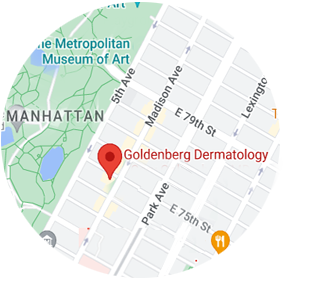Dr. Goldenberg discusses use of Argan Oil on FoxNews Magazine
Dr. Goldenberg discusses the use of Argan Oil on FoxNews Magazine:
Argan oil (the oil extracted from the fruit of Morocco’s argan tree) has been popping up in our shampoos, body butters and facial masks, with manufacturers pointing to its endless hydrating and healing properties.
But does argan oil live up to the hype?
“Argan oil has incredible conditioning and anti-aging properties that keep hair and skin revitalized,” says cosmetics expert Marla Malcolm Beck, the CEO and co-founder of Bluemercury.com. “It’s great for dry skin, does not clog pores, helps minimize fine lines, and can treat split ends.”
It can also be used to prevent stretch marks, she says, and even improve certain skin conditions. “Argan oil can help people with mild acne as the oleic acid found in the oil helps promote healthy levels of sebum production, and its linoleic acid helps prevent excess dead skin cells by promoting healthy skin turnover.”
Dermatologist Gary Goldenberg agrees — but only to a degree.
Goldenberg, who serves as an assistant professor of dermatology and pathology at the Mount Sinai School of Medicine, notes that argan oil has long been thought to be a treatment for dermatitis and acne, “although studies for this are lacking,” he says.
Dermatitis and acne are both complex and in more severe forms, should be treated by an accredited dermatologist with the proper experience. Scalp dermatitis is especially tricky to treat. For this, Dr. Goldenberg recommends Dr. Marder’s Total Relief Shampoo and Conditioner line, specifically formulated to relieve dry scalp, itchiness and dandruff.
“Tocopherols, or vitamin E, is likely the most beneficial ingredient in argan oil,” says Goldenberg, who adds that tocopherols are often used in cosmetics for “their presumed anti-oxidant effect.” But knowing this, he usually just recommends vitamin E itself as a moisturizer for patients with scars, eczema and dry scalp.
That’s not to say he disapproves of argan oil for those who want to try it. Goldenberg sees no harm in using the stuff, and even goes as far as to say, “I think it’s a safe product.” That’s definitely good news, especially for those who feel they might benefit from the plentiful argan-infused treatments flooding the cosmetics aisle.
Beck, however, warns against buying beauty products simply because they list argan oil on the label. “I would recommend that you make sure you’re purchasing what is right for your hair and body,” she urges.
For this very reason, Beck would recommend trying specifically tailored argan oil offerings — especially for hair. “Our clients love the Moroccanoil Treatment, which has three different formulas: light, color-treated and thick.” For dry, damaged or color-treated hair, she claims that Oribe Gold Lust Nourishing Hair Oil is a must-have (and it doesn’t hurt that her clients refer to it as “liquid gold”).
Argan oil skin treatments are also tailored to specific skin types, but Beck recommends two to start with: Laura Mercier’s Flawless Skin Repair Crème, which she says gets a boost of hydration from the inclusion of argan oil; and Darphin Nourishing Satin Oil, which Beck personally uses on her skin and arms before a night out. “You can instantly see the hydrating power, which transforms your skin,” she says of the Darphin oil. “And it smells amazing.”
Still, Goldenberg states that it’s hard to pinpoint which of these specific benefits is a direct result of argan oil and not vitamin E.
“I think it’s very important to understand that lots of claims are made without scientific data,” says Goldenberg of argan advocates. For example, Goldenberg says he’s familiar with one particular scientific study that likens argan oil products to placebos, and a few cosmeceutical studies in which there was no standard with which to measure the oil’s effects. “It’s much easier to show a benefit that way,” he warns.
The cosmetic effects of argan oil, then, should be left up to each individual consumer to determine after a reasonable period of use — or at least until the next “miracle oil” infiltrates the beauty aisle.













Leave a Reply
Want to join the discussion?Feel free to contribute!